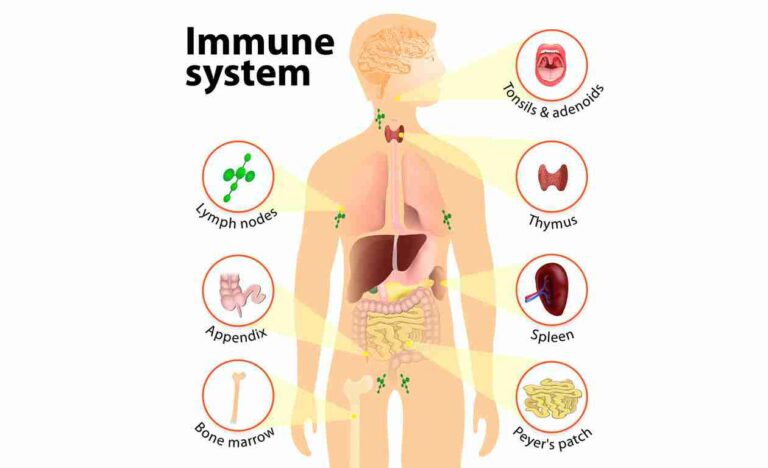Meaning of General Physician
General physician, also called family doctors or internists, often establish an ongoing relationship with you and provide continuity of care. They treat the common medical condition and perform routine examinations. If you need urgent or specialist treatment, they refer you to other medical services or doctors.
A general physician focuses on your overall health: physical and mental. They play an important role in the much wider healthcare system.
Much of their work is with inpatients, and most General Physicians also see patients in their surgeries.
Their wide range of expertise sets General Physicians apart from other specialists who limit their medical practice to problems involving only one body system or a particular area of medical expertise.
Specialist doctors are those who primarily focus on specific diseases, disorders or areas of the body. General physicians offer general care and refer patients to specialists when necessary.
Table of Contents
Roles of a General Physician
General physicians are consultants who care for patients with special or difficult problems. General physicians only see patients who are referred to them by another doctor, usually the patient’s own general physician.
Complex care: GPs are specially trained to care for patients with complex conditions that can be difficult to diagnose. A general physician’s broad training provides expertise in the diagnosis and treatment of problems affecting a patient’s various body systems. They are also trained to deal with the social and psychological effects of the illness.
Global approach: Whether the referral identifies one or more health problems, the general physician’s assessment is always comprehensive. This global approach makes it possible to uncover problems and consider diagnostic options that might otherwise be missed.
Procedures: General physicians are trained to perform a variety of medical procedures to diagnose and treat patients with serious and complex illnesses.
Diagnostics: General physicians have special training in the usefulness, limitations, and costs of most diagnostic tests. General physicians use diagnostic tests safely, logically, and effectively to investigate difficult diagnostic problems.
Treatment: General physicians are trained in the critical analysis of research reports and claims made by the pharmaceutical industry about new treatments. They have knowledge of the complex interactions of drugs administered simultaneously to treat multiple diseases in a patient. A general physician has special expertise in making treatment decisions to help patients with complex and serious illnesses.
Preoperative and Postoperative Examination: General physicians are often asked to examine patients before surgery. They inform surgeons about the patient’s risk status and can recommend appropriate treatment to minimize the risk of surgery. They can also assist with post-operative care and ongoing medical problems or complications.
Reasons to See a General physician
General physicians can help you with many routine and serious conditions. There are several reasons to see your GP, including:
Wellness exams and preventive medicine
One of the most important roles of a general physician is performing routine screenings for medical conditions. You may benefit from seeing a GP to check for conditions such as:
- High blood pressure
- Risk factors for heart disease
- Risk factors for diabetes
- High cholesterol
- Cancer
- Sexually transmitted diseases
- Depression
General physicians can be helpful in the early detection of health conditions as well as preventive medicine. If you have a family history of chronic disease, are at risk of chronic disease, or are experiencing symptoms, seeing your GP will benefit your health and well-being.
In addition, GPs are a great source of information on any necessary vaccinations and preventative care.
Urgent care for illness or injury
An equally important duty of a general physician is the treatment of illnesses and injuries. See your GP when you are ill, injured, or experiencing uncomfortable symptoms.
A GP can use laboratory tests to diagnose the disease, prescribe medication for treatment, assess your overall health and refer you to a specialist if necessary.
GPs can treat acute (short-term) conditions such as:
- Small wounds
- Asthmatic attacks
- migraines
- Urinary tract infection
- Colds and flu
- Fever
- Dehydration
- Small broken bones
- Skin infections or rashes
- Muscle pain, strains, and sprains
In the event of a mental health crisis, your GP can put you in touch with a mental health specialist.
Chronic conditions
GPs can provide prescriptions, lifestyle advice, and follow-up care for chronic conditions such as heart disease, diabetes, asthma, high blood pressure, and some mental health conditions.
Difference between a General Physician and a Surgeon
There are major differences between general physicians and surgeons and it is important to be aware of them. First, general physicians administer treatments that push the body to heal itself. However, surgeons diagnose to correct medical conditions through surgery. General surgeons can and do operate on any part of the body, but some specialize in specific areas too.
Second, GPs build long-term relationships with patients and offer advice on overall well-being and health care. Surgeons serve to solve a problem with surgery, and it is a rare occurrence that surgeons will perform the duties of a general physician.
Conclusion
Understanding the role of a GP in your life is important and when you are faced with an illness, a GP is the first person you are likely to go to. However, to find the ideal one, use Bajaj Finserv Health to find the most suitable doctor for you.
This digital delivery is packed with telemedicine benefits and features that make healthcare simple, easy, and convenient. It has a smart search feature that lets you find the best GP in your area and book appointments at his clinic online. This avoids the need to travel to make an appointment with a doctor.
Additionally, if you are looking for an online GP consultation, you can use Bajaj Finserv Health to get medical care remotely, via video or chat. Plus, you can securely store your and your family’s patient records and send them electronically to doctors for better remote care.







